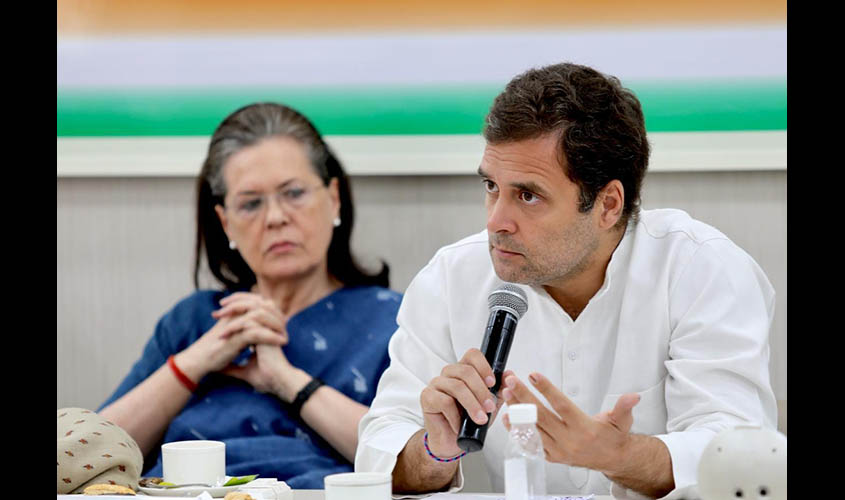New Delhi: In order to chart out a roadmap to revive the Congress in the country, party leaders want their top “bosses” to return to the report submitted by the A.K. Antony committee looking into the reasons behind the debacle the party suffered in the 2014 Lok Sabha elections. The committee was constituted by the then Congress president Sonia Gandhi.
The committee had three other members apart from Antony—Mukul Wasnik, R.C. Khuntia and Avinash Pandey. It was set up within two weeks of the Lok Sabha results being declared on 16 May 2014—when the Congress was relegated to 44 seats—and it submitted its findings to Sonia Gandhi on 14 August 2014.
A senior party leader requesting anonymity said: “If the findings of the committee were looked into and things rectified, then the situation would not have been as bad as it is now. There is talk that another committee might be constituted on how to re-energise the party. However, who is going to take the committee seriously? We are failing to showcase new faces in front of the people. You look at the faces that represent Congress now; it is the same lot as in 2004, 2009, 2014 and now in 2019. Even ‘young’ leaders like Jyotiraditya Scindia, Sachin Pilot have become ‘old’. In the states, too, the party is revolving around the same sets of names. You pick any state and you will find the same individuals dictating the party’s functioning as they were 10-15 years ago. The lack of intra-party churning has existed for long and the Gandhis have failed to address it.”
He gave the example of 1998, when Sonia Gandhi took charge of the party’s affairs. There were several strong Congress leaders all across the country. “Now, because of the durbar culture that has been practised since then, strong leaders have not survived in the party. Only those who are ‘loyal’ to ‘Madam’ have survived and flourished. When access to 10 Janpath is the only criterion for one’s rise in the party why would anyone waste one’s time strengthening the party in their respective states when one can rise just by being close to a few top leaders?”
Party leaders across Madhya Pradesh, Chhattisgarh, Bihar, Jharkhand, West Bengal and Delhi said that the findings of the Antony panel report were never made public or shared with the leaders or workers.
A senior Ranchi-based party leader said: “The content of the report was discussed among a few ‘top’ leaders (notably, Sonia and Rahul Gandhi), after which the state and district leaders were asked to share their views on the debacle. After that, multiple reports were prepared on the basis of inputs received from them, which were then presented to Rahul Gandhi in February 2015. However, it remains a mystery as to whether any of the recommendations made by the Antony committee was implemented or not.”
The Sunday Guardian, after speaking to party sources, gathered that among the many reasons that were listed out by the committee for the Congress’ loss in 2014, were perceived minority appeasement, weak communication strategy, conduct of top state leaders who were engaged in infighting and who worked with the intention to make themselves strong in their home states, and a lack of coordination when it came to strategising between the state and the centre (Rahul Gandhi’s team).
The report absolved the Gandhis of any “wrongdoing”. Incidentally, it was the second such report prepared by Antony. Another committee under Antony was constituted in 1999 after the Atal Bihari Vajpayee-led NDA had won the Lok Sabha elections.
According to a senior party leader who has been a Lok Sabha MP, unless and until the “unbridled power” of some senior functionaries, who have been running the party for decades, is curtailed, nothing will change on the ground. “These select individuals represent the durbar culture, which plagues the Congress. Due to their exclusive access, first with Sonia Gandhi and then with Rahul Gandhi, they have made themselves more powerful than the Gandhis. There is no democracy at the top; the only thing that matters is how close you are to these select leaders. These individuals make sure that anyone who gives the Gandhis any honest and genuine feedback, is immediately removed from the list of those who can meet the Gandhis,” he said.

